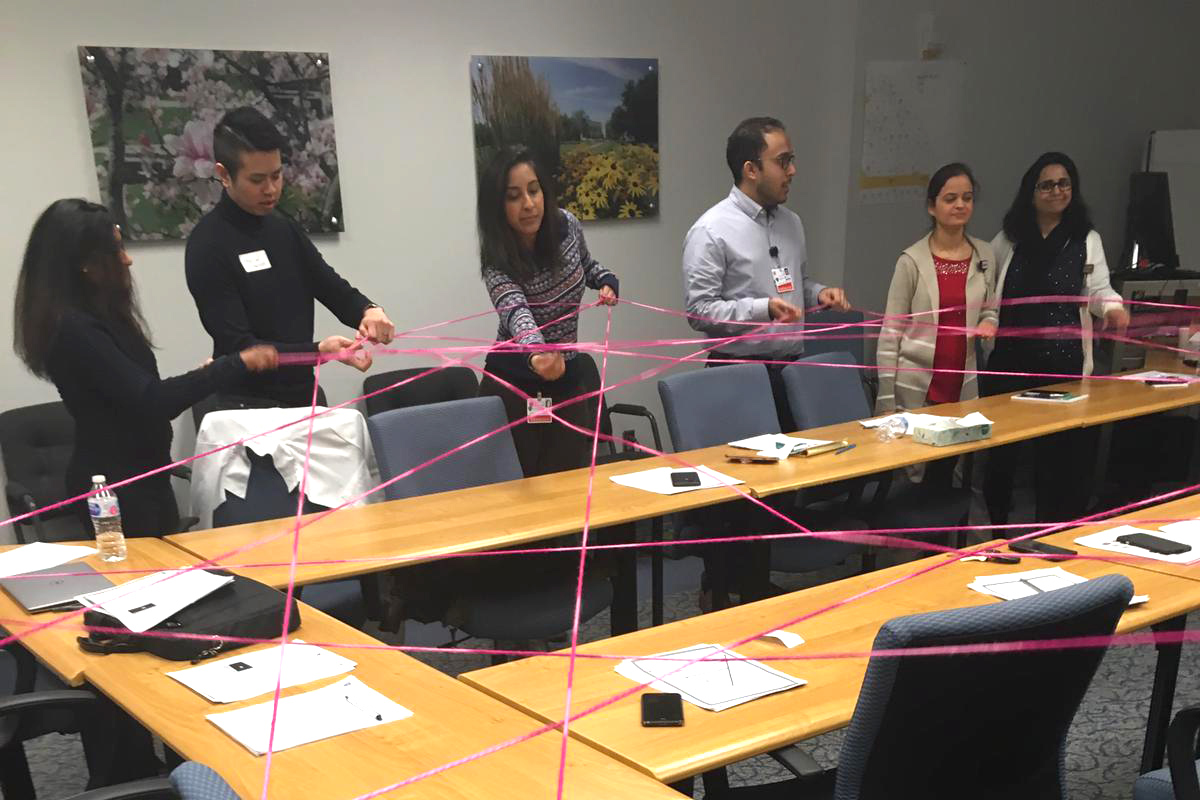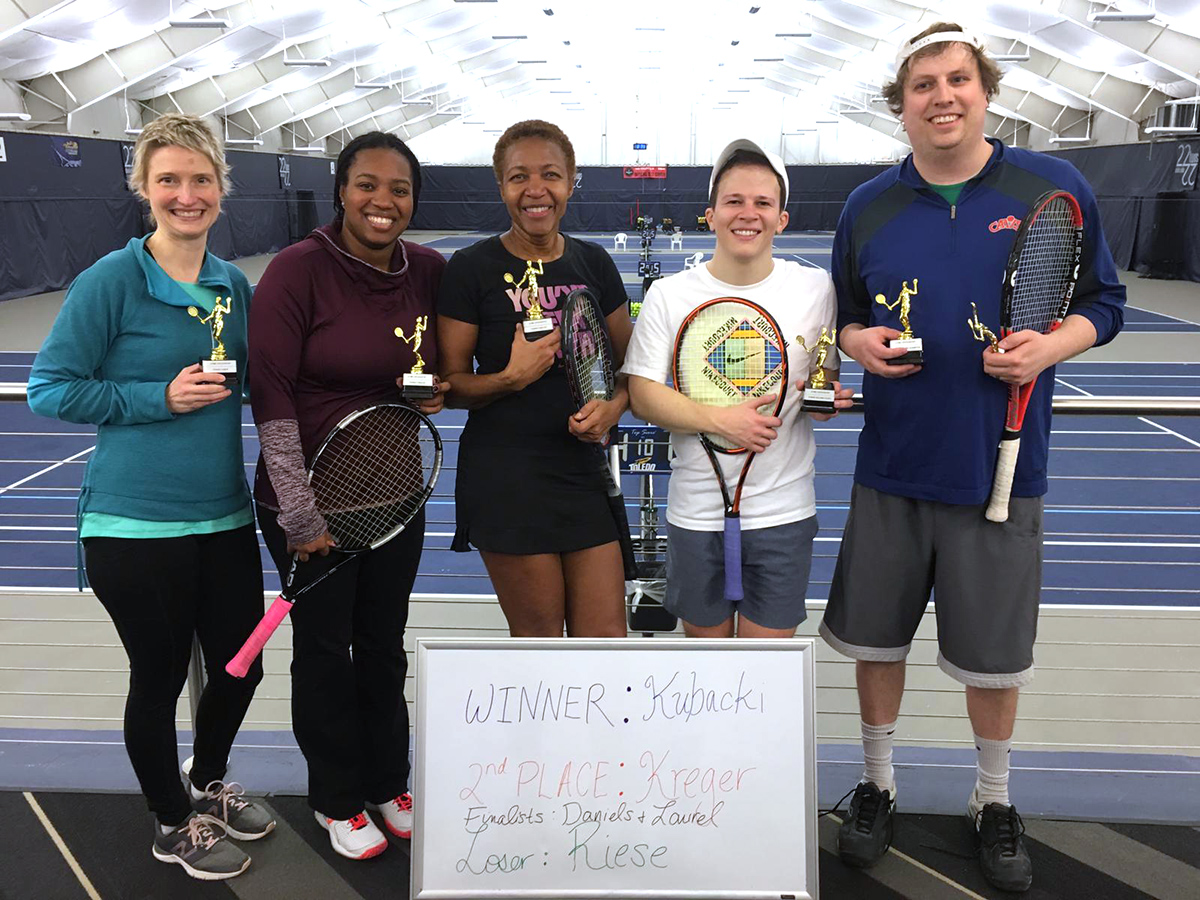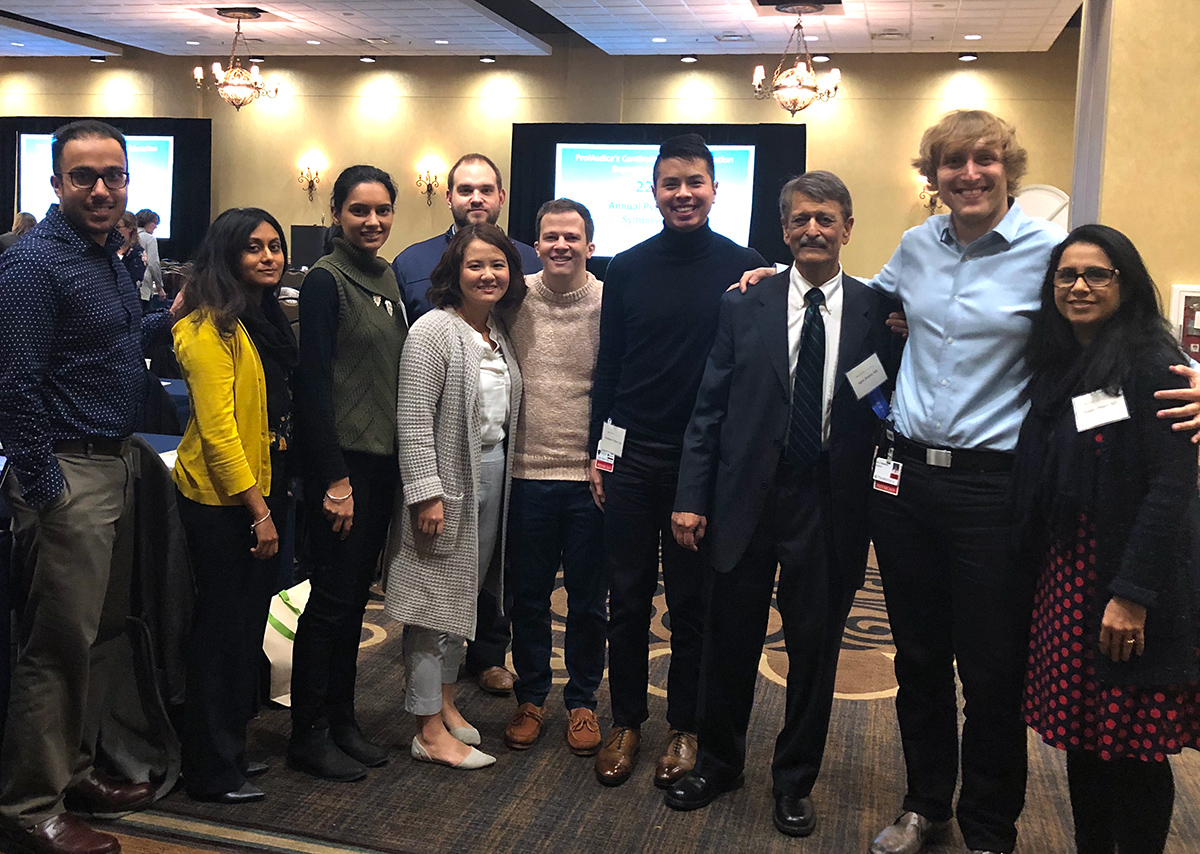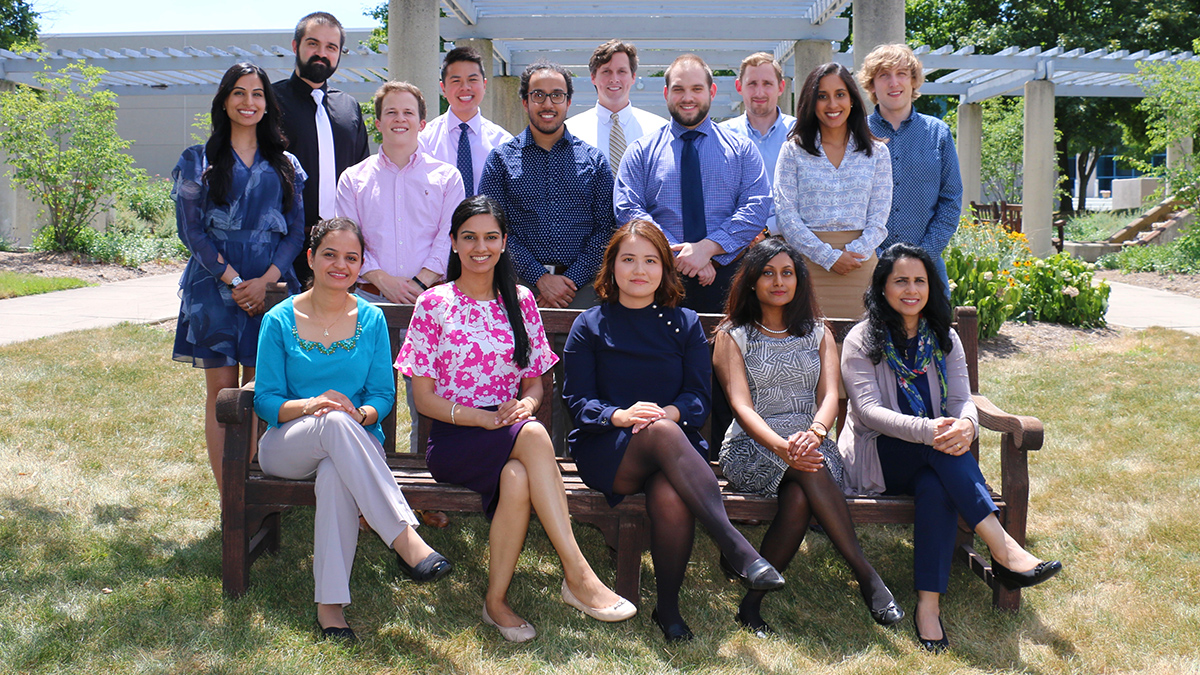Highlights: General Psychiatry Residency Program
Quick Menu » Residency Home | Highlights | Application | Residents | Graduates | Faculty | Benefits | FAQs |
Rotations | Curriculum | Residents as Teachers | Subspecialty Experiences | Child Track | Photos | Toledo-Area Attractions | Residency Brochure
OBSERVATION OF DIAGNOSTIC ASSESSMENTS AND FOLLOW UP APPOINTMENTS
Attending physicians observe PGY 2 and 3 residents behind a one-way mirror during diagnostic assessments with immediate feedback and discussion following the assessment. The program is one of only a few across the nation that uses this unique mode of assessment.
Residents are also directly observed with immediate feedback and case formulation. Residents report that the observation process is an outstanding learning experience for them, whether they are sitting behind the mirror with the attending, or receiving feedback after the session is completed.
 CONTINUITY CLINIC
CONTINUITY CLINIC
Starting PGY 2 year, residents will have continuity clinic 1 afternoon a week consisting of both medication management and therapy patients that they will follow throughout residency. This is a great opportunity to build long term therapeutic relationships and take ownership of patients.
GERIATRIC PSYCHIATRY
Residents get the unique opportunity to work closely with the geriatric patient population during inpatient rotations at the Senior Behavioral Health Unit on the UTMC Health Science Campus. Common diagnoses on the inpatient unit include cognitive disorders, dementia with behavioral disturbances, as well as depression and mood disorders. Additional geriatric exposure occurs during outpatient rotations at the Ruppert Health Center with a geriatric psychiatrist. Experiences and electives are also available with board certified neuropsychologists, and electroconvulsive therapy with the geriatric population.
CONSULTATION-LIAISON SERVICE
The residents provide psychiatric consultation services at the University of Toledo Medical Center, under the directorship of a CL psychiatrist for adult patients, and geriatric psychiatrists for consult requests for those aged 55 and older. Residents rotate on this service during their PGY 2 year, and it is a service covered while on-call.
CALL FROM HOME
Starting PGY 2, residents have the option of being on call from home as long as they are able to quickly be in the hospital when paged. There is no call during PGY 4 year. Residents are sent home at end of shift, on post-call days. For comfort, there is a call room in the main hospital plus one call room in the psychiatry department.

RESIDENT WELLNESS
Resident wellness is a priority for the program. Post-call days off, encouragement of use of accrued time-off, and an overall ambience of fun, openness, and teamwork help residents maintain their wellness. The program also provides textbooks, meal cards, online question banks, and other resources, so that the resident stipend can be used for other professional expenses. The program regularly has wellness events (such as dinner outings, social and sporting events, and more). There are 2 residency retreats, one in November and another in May, to evaluate the residency program and participate in team-building events, at an off-site location of their choosing. The program routinely incorporates feedback from residents to implement positive changes for the residents’ educational and professional development. The University also provides wellness services.
PROFESSIONAL DEVELOPMENT OPPORTUNITIES
Residents are encouraged to participate in organizations outside of the residency program including at the local level with the Northwest Ohio Psychiatric Physicians Association (NWOPPA), and at the state level with the Ohio Psychiatric Physicians Association (OPPA), where the residents have the chance to network and interact with psychiatrists in the community. Residents and faculty are able to also provide educational continuing education seminars to other departments, in the community, collaborate with National Alliance on Mental Illness events, and more. Other leadership opportunities include medical student mentoring, hospital or medical school committees, and development of electives or additional learning experiences. The department also supports residents who present their research or scholarly activity at conferences.

SMALL-SCALE PROGRAM
Being a small-scale program, the residents are able to have close relationships with their peers and mentors. This ensures that each and every resident is given the one on one supervision and training that is crucial during this state of their career. Weekly group process also allows an opportunity for residents to discuss personal and professional issues in a confidential setting. The faculty have diverse clinical interests, which contributes to a comprehensive learning environment.
Program Highlights Application Current Residents Graduated Residents Faculty Benefits FAQ Resident Rotations and Training Facilities Curriculum and Conferences Residents as Teachers and Mentors Subspecialty Experiences Pictures Toledo-Area Attractions Virtual Campus TourResidency Brochure



